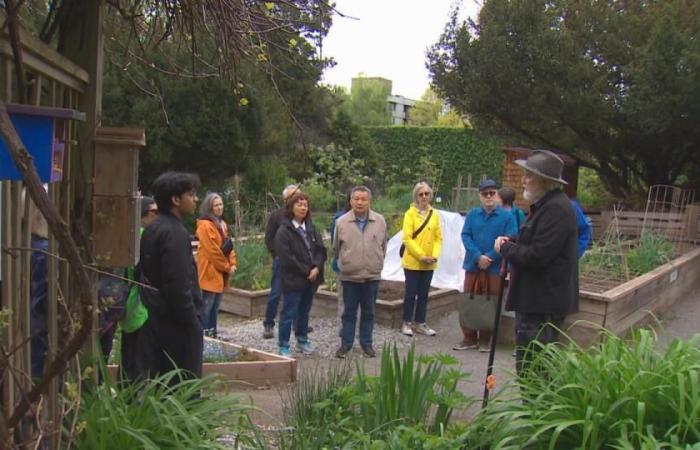اخبار العرب-كندا 24: السبت 4 مايو 2024 09:05 مساءً
Watering restrictions have begun for the Metro Vancouver region, with some residents planting biodiverse lawns amid an ongoing drought in the province.
The restrictions, which are set to be in place until Oct. 15, have become an annual occurrence as the regional district aims to conserve drinking water.
According to Metro Vancouver, water use increases by more than 50 per cent during the summer months, largely due to lawn watering, which accounts for the highest discretionary use of water outside the home.
This year, the restrictions come amid an ongoing multi-year drought, with B.C.'s snowpack at the lowest level ever recorded in the month of April.
"The recent spring showers have helped to bolster our reservoirs, but we still have a lower than normal snowpack and every expectation of a hot and dry summer," Metro Vancouver Board Chair George Harvie said in a statement.
B.C. officials have warned that the province could face challenging conditions this summer, with an update earlier this spring showing that a low snowpack could exacerbate the provincewide drought due to a lack of rain and snow during the fall and winter.
Metro Vancouver's watering restrictions, which began Wednesday, mean people whose addresses are even numbers are permitted to water their lawns on Saturday mornings, while residents at odd-numbered addresses can water on Sunday mornings.
Automatic watering can take place from 5 a.m. until 7 a.m., and manual watering, such as using a hose to water, is allowed between 6 a.m. and 9 a.m.
Non-residential properties with even numbers are allowed to water lawns on Monday mornings, while odd numbers can water on Tuesday mornings. Automatic watering at non-residential sites may take place from 4 a.m. until 6 a.m., and manual watering is permitted between 6 a.m. and 9 a.m.
Watering other vegetation on residential properties, such as trees and flowers, is allowed daily from 5 a.m. to 9 a.m. when using sprinklers, or any time using drip irrigation.
Edible plants on residential or non-residential properties can be watered at any time.
Anyone within the City of Vancouver caught watering outside allotted hours will be issued a fine of up to $250, the city said.
Residents plant alternatives
Meanwhile, advocates encouraged Vancouverites to plant diverse lawns rather than grass, at a walking tour held in honour of Jane Jacobs, a former urban planning guru who championed a community-based approach to city building and who passed away in 2006.
The "Mow it or grow it" walking tour near Vancouver's Queen Elizabeth Park was organized to showcase perennial trees, native plants and vegetables as alternatives.
Judy Shinnick, one of the tour guides, said that native plants may not be "showy," but they often adapt better to B.C.'s current climate compared to non-native grass species.
She said some residents near Yukon Street have already planted shrubs that provide ample shade, along with others who have started growing vegetables along with ornamental plants.
"Think about that when you first get started on your garden — what what will work best with little water?" she said.
A walking tour near Vancouver's Queen Elizabeth Park was organized to showcase perennial trees, native plants and vegetables as alternatives to grass lawns, which use a lot of water. (Murray Titus/CBC)
Ian Hanington, a spokesperson for the David Suzuki Foundation, said studies have shown that grass is the largest irrigated crop in the United States, and it takes up an enormous amount of pesticides and herbicides to maintain a lawn correctly.
"The studies we've seen show that even if just 10 per cent of lawns were converted to habitat, it would have a significantly beneficial effect on insects," he told CBC News. "[Insects] are important for pollination, they're an important part of the food web."
In addition, some native plants don't require as much water, which could help people adapt to water restrictions, he said.
تم ادراج الخبر والعهده على المصدر، الرجاء الكتابة الينا لاي توضبح - برجاء اخبارنا بريديا عن خروقات لحقوق النشر للغير







